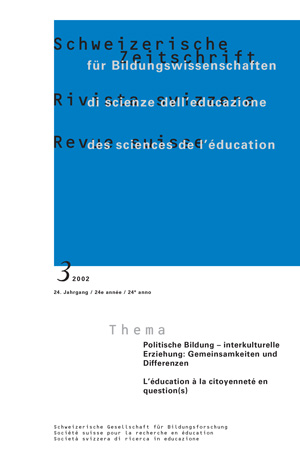Intercultual education and citizen education: A detour by way of sociology of the nation
DOI:
https://doi.org/10.24452/sjer.24.3.4638Abstract
The question of the relationship between intercultural education and citizen education could be placed within a socio-political context or should be asked today in the western world. This context is characterized by a rarely seen crisis, namely the rejection of the «classical» nation state placed upon a ethnic naturalized opposition which lies somewhere between established and outsiders combined with a democratic principle. One observes a new social salience of cultural plurality as a problem, which is pleading for public treatment, and pluralism as a value. Public education is one of the origins of this crisis and at the same time is one of the places in which its treatment is foreseen. In Quebec, the emblem of interculturalism, they could experiment in the domain of the symbolic re-elaboration of Quebec as a nation (since the end of the 1970s) before being shut down by public opinion in favor of other emblems, which were more explicitly inclusive. In France the recent revitalization of citizen education and the recognition of different cultures explains the differences seen within the context of what we call the crisis of assimilated integration and the inflexion which sheds light on the «regime of tolerance».
Downloads
Downloads
Published
Issue
Section
License
Copyright (c) 2002 Françoise Lorcerie

This work is licensed under a Creative Commons Attribution 4.0 International License.



